This is all about you, me and everyone who works or has worked for someone else. Employee orientation is the most propitious time a company has for training.

Think back to those glorious days when you were fresh, hyper-energetic (not hypo-allergenic, that’s different), sharp, and couldn’t wait to get started. Your day went down from there. You went to personnel and filled out some forms and were handed a packet. You probably received a briefing…I’m calling it a briefing because it felt like a briefing. To me, a briefing is information shoved in my mind and a presentation does it in a more subtle way. Still, the people giving the information don’t seem to care about you and sometimes share their own jaded feelings about the company even though their hearts are in the right places, do my duty and all that.
Is there no possible way of making this process more interesting? Is it about money? You could have fancier products, but I don’t think it’s necessary. It is about first impressions. The company’s, not yours. That makes it a people event, not just process.
Here’s my example of a good first impression (from the military, believe it or not). I pull into the parking lot according to the directions I have in my hand and start to pull my things out of the car. Meanwhile, a tallish, young smartly dressed young man in uniform, shoes shining, strides out to meet me at my car. He looks me in the eye the entire time as he approaches; he smiles a genuine smile, salutes and says, “Welcome to Officer Training, Sir. I’ll be your escort. You can call me, Bob. Here, let me take that for you.” Professional, friendly. I’m impressed.
Another military tale. I arrive on the bus with all the other recruits. We are all different. We have no idea what to expect…and there he is: A lone drill instructor, a Marine Master Sergeant, is centered in front of the bus as it pulls in. He makes no move to attract the attention of the driver, who stops almost precisely six feet in front of him. The drill instructor moves around to the door of the bus and stands aside so it can open, which it does almost immediately. I can see two of his cronies off to the side, ready to come in and assist if we are unable to do what is expected of us. “GET OFF THE BUS AND GET ON THE FOOTPRINTS!” There is a mad scramble and seconds later we are all standing on the footprints about to get an orientation.

And, boy, do we get it! We are told how to stand, when to move and how not to faint. It seems like an eon of waiting before processing is ready for us. There is a thud! Then another! And another! These are people hitting the ground. Apparently, they were so anxious to please, they locked their knees, which caused them to faint from improper circulation. The other drill instructors come around now and pick them up, instructing them on how not to faint (again) while standing at attention. We are then marched off to be processed. I am impressed.
My point is that there are impressions and there are impressions. Both may work in their context. In this case, both work, believe it or not. In the first example, I was treated respectfully as an adult, equal to co-worker who had more experience (he was escorting me) and in the other I was immediately immersed into the environment I could expect. In either case, I was not lied to; I was not made to feel one way and then treated another once I settled in. In the first environment I was always treated like an “officer and a gentleman” since that was the point and the expectation of the training. It was who I was expected to be at the conclusion of my training. In the other situation, I was to learn to react quickly to orders, do as I was told, learn what I needed to do to survive and help others survive. Again, that would be my job as an enlisted Marine.
These are true stories, by the way, and I am amazed to this day, that the system works as well as it does. Now, my military days are done, but not my perception of reality and human behavior. People want to know what to expect. We tell them. We process them like the DMV. People don’t want to be treated like a number unless they are playing a number in a school play. Not even those in the military; recruits aren’t numbers, but solders, sailors, marines, airmen, coast guardsmen, etc.
My advice: treat employees as people, not numbers. Don’t make them stand on footprints if that’s not part of their job. Treat them as the successes you hired and they will be your company’s successes now. Ever watch a movie where the rough, tough, hard-to-train or teach individual how to be part of the group becomes the teacher in the end? Hollywood gets it.

Many people link their identity to their jobs. Our jobs do play a large part of who we are, but we are more. Our packets should address as personally as possible those very points and what that means to the company. Does it make sense for a company that deals with family-friendly or children-friendly products to not have family friendly programs like bring your child to work days or day care set- ups? Now, I’m not saying they have to, but it probably wouldn’t hurt to explain why not or what future plans might reflect that possibility. Is there a place for a woman to use a breast pump and store her milk until she goes home? It could mean a lot to an employee, and to think the company is aware just made her day. Just to show the company walks the walk. Mentioning family-friendly leave policies might be enough. The point is to keep the company dialogue people-centered. Nuts and bolts can come later.
I like a basic turn-over folder that tells me some specifics, especially if written by the person whose place I may be taking. If not, I really like to know who I can genuinely turn to when I need the simplest instruction. Hey, I may have missed the obvious. The last thing I need now is someone to make me feel like an idiot; I’m trying to impress my new colleagues. And, please don’t judge too soon. I may be the type to be overzealous and oversell. Give me acceptance and see if I don’t settle down. If I’m still a jerk much later, then put me in my place.
Here come some “nuts and bolts.” If all I have is a job outline, how do I start and not feel a little lost? How do I feel when those employees laugh at me rather than help me learn? Competition from Day One is not the way to start. Office politics should not play a part, yet inevitably they do. The corporate culture should support teamwork and reward helpfulness, but there are always people who feel the only way to look good is make someone else look bad or incompetent. It’s sad when incompetence comes at the cost of ignorance, but it does. Reward the helpful; it keeps down the worry of how helping and taking time away from your own job to help is a negative. On both parts.
Employee orientation is probably the most important time for training. It is when you train for the corporate culture you want to create. You can try to eliminate what you don’t want. Motivate new employees in ways that suit today’s culture. Times change faster than people do. Most of all, offer help to the new employee to feel wanted, accepted by the others in the workforce and not a threat, and impress them with your ability to see them as more than numbers.
—
For more resources about training, see the Training library.
For a look at the human side of training from my Cave Man perspective, please check out my book, The Cave Man Guide to Training and Development. Happy training.


This is very interesting, You are a very skilled blogger. I’ve joined your rss feed and look forward to seeking more of your great post. Also, I’ve shared your site in my social networks!
Jarred,
I certainly thank you for your interest and compliments. I am an observer of life that nothing ever came easy to–so I pick a topic and go with it. Sometimes, it’s something that doesn’t seem fair, or seems selfish, or even mean-spirited. These are issues that matter most to me. I am writing about a subject I think is important to anyone who works for a living, and I try to be a creative communicator in expressing my views. I have been around and I feel there is a common sense to business sense, and to training sense.
I get carried away–passionate about a topic–and some may not hold the same view, but that’s okay. My way is to take a little of this and little of that and make it my own. I take comments seriously and it does a writer good to know someone is getting something out of what he says. Would you believe I also write a theatre column, write theatre reviews and interviews? I have been a trainer, training developer and manager; I have also worked in government for a great many years. I just try to make connections to all. I know how it feels to be trained; I know how it feels to be the trainer; and I hope I know how managers feel about training.
You’ve inspired my article today–something about looking at producing results as opposed hiring the “best marketer.”
Thanks again.